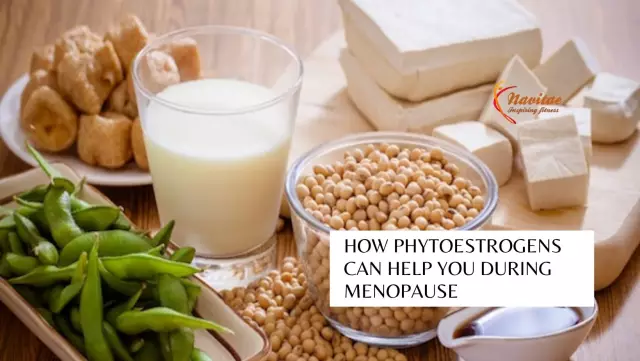- Author Rachel Wainwright wainwright@abchealthonline.com.
- Public 2023-12-15 07:39.
- Last modified 2025-11-02 20:14.
Steroid hormones and their functions in the body
The content of the article:
-
Functions of steroid hormones in the body
- Corticosteroids
- Sex hormones
- Steroid drugs
- Video
Steroid hormones are physiologically active substances that regulate many vital processes in the human body.
These compounds are made from cholesterol in the adrenal cortex, testes in men and ovaries in women, and are also produced by the placenta during pregnancy. The pituitary and hypothalamus are involved in the regulation of their synthesis.

Steroids are made in the body from cholesterol
These biologically active substances are in free form in the cytoplasm, as well as in adipocytes (fat cells). High lipophilicity allows them to easily pass through the plasma membranes into the blood, and then enter the target cells.
The table shows biologically active substances that belong to this group.
| Group of biologically active substances | Kinds |
| Corticosteroids | Glucocorticoids, mineralocorticoids |
| Sex hormones (gonadosteroids) | Progestogens, estrogens, androgens |
Functions of steroid hormones in the body
The sex glands, like the adrenal glands, produce quite a lot of steroids, but only a few of them have biological activity. Steroid hormones regulate tissue differentiation, growth, adaptation of the body to adverse conditions, behavior, reproductive functions.
Corticosteroids
Corticosteroids are a subclass of steroids that are synthesized by the adrenal glands. To one degree or another, they have glucocorticoid and mineralocorticoid activity, depending on this, they are subdivided into glucocorticoids and mineralocorticoids.
- Glucocorticoids - have an anti-shock effect, immunoregulatory, anti-stress action, affect metabolic processes, reduce the damaging effect on the bone marrow of chemical and radiation therapy. The most active glucocorticoid in the human body (but not in all vertebrates) is cortisol.
- Mineralocorticoids - have a strong effect on water-salt metabolism, take part in the regulation of blood pressure, increase the volume of circulating blood. The most active mineralocorticoid in the human body is aldosterone.
Sex hormones
Gonadosteroids, or sex hormones, are biologically active substances that ensure the development and functioning of the human body according to the female (estrogens, progestogens) or male (androgens) type. They are produced in the body of both sexes, but in different quantities.
- Androgens - have a pronounced anabolic effect, affect carbohydrate metabolism, libido. Under the influence of these substances (their certain level) in persons of both sexes, but mainly in men, secondary sexual characteristics are formed.
- Estrogens - contribute to the formation of a female body type, the development of internal genital organs, mammary glands (including the possibility of lactation), the presence of the menstrual cycle, and the onset of pregnancy.
- Progestogens - provide the possibility of the onset and maintenance of pregnancy, have antiandrogenic activity.
Steroid drugs
Medicines of a steroid nature are used to treat hormonal disorders, as well as to accelerate the body's recovery after severe long-term illnesses. Synthetic anabolic steroids are often used in sports, especially in its strength forms.
Uncontrolled use of steroid hormone preparations is dangerous with the likelihood of developing:
- skin diseases;
- disorders of the liver and kidneys;
- pathologies of the cardiovascular system;
- increase in blood pressure;
- thrombus formation;
- hypercholesterolemia;
- mental disorders.
Glucocorticoid preparations are powerful anti-inflammatory drugs that are used for bronchial asthma, skin diseases, allergic processes, autoimmune diseases, and anti-shock therapy.
Mineralocorticoids are used for Addison's disease, muscle weakness, pathologies associated with impaired water-salt metabolism, skin diseases.
When taking corticosteroids, patients may experience side effects:
- retention of water and sodium in the body;
- increased excretion of potassium;
- increased blood pressure levels;
- increased concentration of glucose in the blood;
- osteoporosis;
- menstrual irregularities;
- glaucoma;
- development of infectious processes of fungal and / or bacterial etiology;
- the occurrence of acne;
- overweight;
- allergic reactions.
That is why hormonal medications should only be taken on strict indications under medical supervision.
Video
We offer for viewing a video on the topic of the article.

Anna Aksenova Medical journalist About the author
Education: 2004-2007 "First Kiev Medical College" specialty "Laboratory Diagnostics".
Found a mistake in the text? Select it and press Ctrl + Enter.






